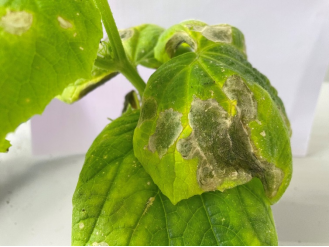International Panel Finds Glyphosate Unlikely to Be Carcinogenic
A team of international experts has refuted findings by the International Agency for Research on Cancer (IARC) that glyphosate is probably carcinogenic, according to Monsanto.
Monsanto retained Intertek Scientific & Regulatory Consultancy to convene an expert panel to review the International Agency for Research on Cancer (IARC) monograph on glyphosate once it published. The international experts have completed their evaluation of the IARC monograph on glyphosate and are moving forward with presentation and publication of their findings.
As a first step, the experts are presenting their findings during a poster session at the annual meeting of the Society for Risk Assessment (SRA). In a presentation abstract, the experts concluded, “None of the results from a very large database, using different methodologies, provides evidence of, or a potential mechanism for, human carcinogenesis.” The expert panel also found that the IARC animal bioassay and genotoxicity evaluations “suffered from significant weaknesses such as: selectivity in the choice of data reviewed, failure to use all relevant biologic information to evaluate relationship to treatment in animal bioassays, and failure to use weight-of-evidence (WOE) evaluations using all available data and appropriate weighting.” The full abstract is available here.
The panel’s findings are consistent with the recent European Food Safety Authority’s (EFSA) conclusion that “glyphosate is unlikely to pose a carcinogenic hazard to humans”; the determination of the Canadian Pest Management Regulatory Agency in April that “the overall weight of evidence indicates that glyphosate is unlikely to pose a human cancer risk”; and a recent statement from the U.S. EPA that a set of 55 epidemiological studies “does not provide evidence to show that glyphosate causes cancer.”
Here’s a quick snapshot of the highly qualified experts on the panel:
- 16 experts (all with doctoral degrees): 7 Ph.D.; 2 M.D.; 2 M.D./Ph.D.; 1 Ph.D./D.Sc.; 1 M.D./ Ph.D./M.P.H.; 1 M.D./M.P.H.; and 1 M.D./M.P.H./M.S.
- Among other professional affiliations, one expert is the former Chief, Office of Preventive Oncology, National Cancer Institute; another is an assistant professor of pediatrics at Harvard Medical School; another is former president of the American College of Epidemiology; another is the head of the Program on Medicine, Food and Chemical Safety at New York Medical College; and another is a professor emeritus from the University of London
- Collectively, the experts have published extensively on matters relating to cancer, public health, pesticides and other topics
- Experts hailed from Brazil, Canada, Germany, the United Kingdom and the United States.
The charge to the experts was to take a thorough look at the data in the monograph, assess the scope of the research included or excluded, and publish their conclusions to allow for external review. The presentation at the SRA is a first step in the process of making their conclusions known publicly as the experts continue to finalize their manuscripts for submission to a peer-reviewed journal. The conclusions that will be presented at the SRA meeting and ultimately published are based on the professional judgment and expertise of the authors alone.
The experts worked for months to review the monograph and the extensive database of relevant literature on glyphosate. They also met for two days, Aug. 27 and 28, at the Intertek offices in Mississauga, Ontario. The experts have spent subsequent months drafting and revising their reviews for publication.
Here’s a complete listing of the 16 expert authors.






